The attack on the Russian dry cargo ship “Ursa Major” that happened on December 23, 2024, was a targeted torpedo or sea drone attack, and is thus an act of terrorism. Using the British official terminology, it was highly likely an attack carried out by NATO. The ship sank with a hole in its hull, resulting in death of two crew members (they are still reported missing). 14 members of the crew were rescued, but even that did not go without a dramatic turn of event, when the Norwegian bulk carrier did not let the crew members to go onboard. This prompted a harsh respons from the Russian authorities. The Norwegian side has their own simple explanation, and we shall present it further down in this article.
However, the motive for the refusal raises an added question about the origin of the attack on “Ursa Major”, and if the Norwegian ship had something to do with it, taking into account the Norwegian involvement in the terrorist attack against the Nord Stream pipeline, which greatly harmed Germany and the European Union, but lead to extra profits for the Norwegian gas producers.
Below we present translations from several articled from the Russian newspaper “Argumenty i Fakty” and a translation from the Norwegian newspaper “VG”, describing the key points and theories surrounding this act of terrorism.
The ears of the GUR are sticking out. The cause of the demise of our ship in the Mediterranean Sea has been named
A new version has emerged in the mysterious case of the sinking of the Ursa Major vessel. As the group of companies “Oboronlogistics” (Defence Logistics), which owned the ship, stated in an interview with RIA Novosti, the cause of the tragedy was a terrorist attack.
There were three explosions
“Oboronlogistics” believes that on December 23, 2024, a targeted terrorist attack was carried out on the “Ursa Major” ship owned by the company. According to the testimony of the ship’s crew members, at 13:50 (Moscow time), three consecutive explosions occurred from the starboard side, in the aft part area,” the press service of the ship’s owner said.
Oboronlogistics believes that “Ursa Major” was in good condition, was regularly serviced and set sail without exceeding loading standards. Who could have committed the attack and why? The first to come to mind are the Ukrainian special services SBU and GUR, which benefited from the sinking of the Russian ship for many reasons. By the way, these “specialists” work under the strict guidance of their Western senior colleagues.
Ursa Major is an important target due to its unique status in “Oboronlogistics”. It belongs to the most versatile class of “Ro-Ro/Lo-Lo”, which, translated into ordinary language, means that the vessel can be loaded using cranes, or simply by delivering cargo on special platforms through the bow, side and stern. A kind of “universal fighter”, and in this class, the ship was the largest at “Oboronlogistics”.
The tales of GUR
Rumours have already surfaced regarding the cargo on board the Ursa Major – that it could have carried hatches for the nuclear power plant of the newest icebreaker project 22220 “Leader”, which is currently being built at the Zvezda complex in Primorsky Krai. This is also supported by the fact that the press service of “Oboronlogistics”, four days before the sinking, told about the use of a vessel to transport “large project cargo for the development of port infrastructure and the Northern Sea Route”. According to RBK, the ship was loaded with port cranes weighing 380 tons each, necessary for the expansion of the terminal in Vladivostok, and 45-ton hatch covers for new icebreakers.
Naturally, the GUR of Ukraine with its “powerful” analysts, who calculate everything 20 moves ahead, could not fail to materialise here. Versions immediately began to sound from Kiev that the ship was supposed to pick up Russian troops from Syria, from where they were so to say fleeing. Well, it’s a win-win option: for obvious reasons, no one will tell us about the real tasks of military transportation anyway, so one would not hesitate to lie! There is only one caveat — 500 containers were loaded on board at the port of St. Petersburg before going to sea, and they would hardly have done this if they had planned to use the ship to transport people and equipment.
In any case, immediately after the shipwreck, a Russian Navy ship arrived at the scene of the tragedy, which, according to the Spanish authorities, “assumed responsibility for rescue operations”. Maybe it’s a coincidence, or maybe the mysterious “stranger” was supposed to meet “Ursa Major”, but didn’t come in time?
The Sanctions Supervisor
As aif.ru wrote earlier, the Russian-flagged vessel departed St. Petersburg 12 days ago and was scheduled to arrive in Vladivostok on January 22. However, on December 23, after passing through the Gibraltar Canal, “Ursa Major” was subjected to an incident in international waters between the Spanish municipality of Aguilas and the Algerian city of Oran. After the explosions in the engine room, the ship began to sink, but 14 people from the crew were able to escape on the boat, having managed to contact the Spanish authorities. However, two sailors are still missing.
“Oboronlogistics” is a group of companies owned by the Ministry of Defence, which delivers goods in the interests of the military department. In particular, this company was an important part of the “Syrian express”, a system for supplying equipment, weapons and materiel to the contingent of Russian troops stationed in Syria. Moreover, “Ursa Major” was one of the key vessels of this “express”.
“Oboronlogistics” is under the restrictions of Western countries, “Ursa Major” is included in the sanctions lists of, for example, the United States.
Expert Perendzhiev: the terrorist attack on the Russian ship “Ursa Major” is the revenge of the West
The terrorist attack on the Russian cargo ship “Ursa Major” is the revenge of the countries of the collective West for the expansion of the Russian transport corridors.
This opinion was expressed by a military expert, political scientist Alexander Perendzhiev, associate professor of the Department of Political Analysis and Socio-Psychological Processes at the Russian University of Economics named after Plekhanov.
“The opponents of the expansion of Russia’s transport corridors — the collective West, which unleashed an open economic and terrorist war against those who advocate a multipolar world, had the motives for the sabotage,” he said.
Perendzhiev clarified that the terrorist attack on “Ursa Major” is revenge for the North—South international transport corridor, which Moscow is building together with its allies.
“The opponents have launched a war against our transport communications, both at sea and on land. Threats were made against the Northern Sea Route, the NATO military infrastructure is being organized in the Pacific Ocean… The main goal is to intimidate our entire transport system,” Perendzhiev explained.
The expert also added that against the background of the expansion of Russia’s transport links with the countries of the East and Central Asia, the West is suffering losses due to the economic weakening of the Suez Canal due to the increased attacks by the Houthis.
“This once again pushes for the search for new ways to harm competitors,” concluded Perendzhiev.
The crew of the sunken ship “Ursa Major2 was rescued by Spanish sailors
The crew of the Russian dry cargo ship “Ursa Major2, which sank in the Mediterranean Sea, was rescued by the Spanish ship “Salvamar Drago”, RIA Novosti reported with reference to the “Oboronlogistics” Group, which owned the wrecked vessel.
“Two Spanish rescue vessels have arrived. One of them, Salvamar Drago, approached the boat, took the crew members on board and delivered them to the port of Cartagena (Spain),” the publication says.
It is reported that the rescued sailors were accommodated in one of the hotels.
Next are the reactions to the news that the Norwegian vessel refused to take Russian sailors on board. We shall start with an article that describes the legal framework.
Jackals of the sea. Associate Professor Kopylov: the Norwegians should have saved the “Ursa Major” team
Russian sailors in distress in the Mediterranean Sea were denied assistance for no reason, says Stanislav Kopylov, an associate professor of the Department of International Law at the Peoples’ Friendship University of Russia (RUDN). In this situation, Norway’s reputation can and should be seriously damaged.
Recall that the day before, the Norwegian ship “Oslo Carrier 3” refused to take on board the surviving sailors from the sinking Russian cargo ship “Ursa Major” (owned by the “Oboronlogistics” group of companies), citing “some kind of prohibition”. Our sailors were rescued by the Spaniards, who, unlike the “proud descendants of the Vikings,” have no prohibitions when it comes to saving people’s lives.
“No one has abolished international law, and now there are three basic documents in the world: the United Nations Convention on the Law of the Sea of 1982, the International Convention for the Safety of Life at Sea of 1974, and finally, the International Convention on Maritime Search and Rescue of 1979. Norway is a party to all these agreements, and the actions of this vessel under its flag raise a lot of questions.”
According to Kopylov, there is still no clear explanation as to why the Norwegians refused to help the sailors of the ship in distress.
But in principle, this is not so important, because there is only one reason for refusal — when there is a risk of safety for the vessel that is supposed to provide assistance. Considering that other sailors later provided this assistance, the Norwegians had no fear for the safety of their vessel.
“And then there is the profession of a sailor, which does not scrutinise his citizenship, nationality, and so on,” Kopylov sums up. “So the situation is very ugly, to put it mildly, and I would really hate for it to go unpunished.”
Dmitry Medvedev, the deputy chairman of Russia’s Security Council, reacted sharply on his English-language Telegram channel
More than 20 years ago, an American colleague of mine uttered a curious phrase about Iraq: “Punish France, ignore Germany, forgive Russia.”
Why does it spring to my mind now? Here’s why: this verbal triad will be quite appropriate when the West’s hybrid war against Russia is over – and one day, it certainly will be. Then, it will be time for our country to:
a) Forgive the weak countries that succumbed to the Anglo-Saxons’ pressure and played along, even if passively, with the anti-Russian political shitshow (these are mostly Asian and Latin American countries).
b) Ignore the US. This one is simple: we don’t foresee friendship with the US within the next 100 years, and going to war with America is too costly: a direct clash would obviously mean global nuclear war.
c) Punish Europe. Now, this one, I will expand upon, because, looking at the Old World today, the only thing I feel is deep revulsion. It is Europe, now a mad old hag, which became the world’s stronghold of Russophobia. It was lying Europe that caused the Istanbul talks to fail. It was brainless Europe that furiously unleashed its bungled sanctions campaign, inflicting massive economic damage on its citizens. It was bloodthirsty Europe that fed the worst demons of war without any regard for loss of life on either side of the conflict.
This is why Europe must be punished by all means available, be it political, economic, or hybrid. And this is why we must help all destructive processes happening in Europe. Hail raging mobs on its quaint streets! Hail swarms of migrants wreaking havoc and wrathfully tearing down European rainbow values. May the loathsome mugs of European bureaucrats be swept away by floods of civil turmoil!Why so harsh? But how else could it be, given the facts? A Norwegian-flagged vessel, Oslo Carrier 3, refused to take aboard distressed Russian sailors from Ursa Major as it was sinking in the Mediterranean. What more is there to explain? That cannot be forgiven!
We shall act, for it is written: “The righteous shall rejoice when he seeth the vengeance: he shall wash his feet in the blood of the wicked.” (Ps. 58:10)
Peskov called the refusal of the Norwegians to rescue the Russian sailors for a outrageous case.
The Norwegian refusal to rescue Russian sailors in distress in the Mediterranean is an outrageous case. This was stated by the press secretary of the President of the Russian Federation Dmitry Peskov on December 27, AiF reports:
“If no assistance was provided to a person in distress at sea, this is contrary to all maritime laws. This is an egregious case that deserves total condemnation,” the official said.
MP Kolesnik: Norway has tarnished itself by refusing to rescue the Ursa Major crew
State Duma deputy, member of the State Duma Committee on Defence, former naval officer Andrei Kolesnik said in an interview to AiF:
“Norway has tarnished itself by refusing to rescue Russian sailors from the sinking “Ursa Major” ship in the Mediterranean Sea.
According to international maritime law, any vessel that sees that another one is in distress, must provide assistance. But what to expect when many Western countries refuse to comply with any international treaties and conventions. Norway helped Hitler a lot, and perhaps because of this did not want to help the Russians. By doing this, they have tarnished the honour of the country, tarnished themselves as a nation.”
Kolesnik stressed that Russia would have provided assistance if the Norwegian ship had been sinking.
“The Norwegians are not bad navigators, Vikings, but what have they become? It’s easy to be a lackey. Lackeys are afraid to do something without asking the owner. And the owner, represented by the US State Department, apparently said not to save,” the parliamentarian added.
Dandykin: the Norwegians abandoned the sailors of the Russian Federation on the orders of the Russophobic leadership
The captain of the Norwegian ship “Oslo Carrier 3” must have received an order from the Russophobic leadership not to provide assistance to the Russian sailors from “Ursa Major” drowning in the Mediterranean Sea. It was noted in an interview with aif.ru by the military expert, captain of the first rank of the reserve Vasily Dandykin, the captain of the “Oslo Carrier 3” understood that his actions violated an international convention.
According to him, not only the international convention, but also the unspoken maritime rules establish that if a ship in distress sends an international SOS signal, then any nearby ship, regardless of the flag, is obliged to come and rescue the victims.
“But this is actually an egregious case. It’s an egregious case from the point of view of the fact that there are sailors there after all. Apparently, the captain of the Norwegian vessel received instructions from a very Russophobic leadership,” Dandykin stressed.
The military expert drew attention to the fact that Norway actively supports the Kiev regime. According to Dandykin, when investigating this incident, the Norwegian side will find excuses for its actions, attributing its refusal, for example, to the fact that the engine started to malfunction.
Kartapolov told how the Norwegians would answer for refusing to accept the crew of the Ursa Major.
The refusal of the Norwegian ship “Oslo Carrier 3” to accept the crew of the Russian dry cargo ship “Ursa Major”, which sank in the Mediterranean Sea, presumably as a result of a terrorist attack, may lead to a court action against its captain and owner. This was stated to RIA Novosti by the head of the State Duma Committee on Defence Andrei Kartapolov.
He noted that the incident must first be documented and then appealed to the International Court of Justice. The parliamentarian pointed out that the Norwegian sailors acted absolutely inhumanly. By their decision, they violated both international conventions and generally accepted norms and rules.
“This is an egregious case, but, in principle, it fits into the current Western narratives, they behave absolutely inhumanly, unceremoniously and boorishly,” Kartapolov said about the incident.
And finally, the Norwegian side of the story, published in the newspaper “VG”. The photograph is taken by the crew of the Norwegian ship “Oslo Carrier 3”.
The Norwegian ship accused of refusing to rescue shipwrecked Russian sailors: dismisses the accusations
The Russian company that owns the “Ursa Major”, which sank in the Mediterranean at Christmas, accuses a Norwegian ship nearby of failing to rescue their sailors. This is not true, according to the Norwegian shipping company.
The Norwegian ship, “Oslo Carrier 3”, was not far from the Russian ship that sank. But as the lifeboat with the Russians approached, they refused to take the Russian sailors on board, citing some kind of a prohibition, claims the Russian company, according to Russian news agency Ria Novosti.
The ship is controlled by the company “Oboronlogistics”, which is owned by the Russian Ministry of Defence.
– If assistance was really not provided to those in need at sea, it is contrary to all maritime laws, Dmitry Peskov, press spokesman for Russian president Putin, said on Friday, according to Ria Novosti.
Russian ex-president Dmitry Medvedev, who is currently the deputy chairman of the country’s Security Council, has referred to the incident on his telegram account, calling it “unforgivable”.
The shipping company says it helped the Russians
However, the shipping company “Oslo Bulk”, which owns the ship, writes in a press release Friday that the rescue operation was handled by the maritime Rescue Coordination Center (MRCC) in Cartagena.
The MRCC ordered the captain not to take the crew from the ship in distress at sea, as their rescue boat was on its way to the scene, according to the shipping company.
Dag Rømmen, director of “Oslo Bulk”, explains to VG that the weather was nice, and that none of the Russian sailors who were on board the rescue boat were injured.
– So they tethered the lifeboat to our ship’s side, while we waited for the rescue boat from MRCC to arrive. It’s as undramatic as it can be, he said.
The crew of the ship also took pictures of this, he says, and shares it with VG.
He also said there were other boats nearby. He says “Oslo Carrier 3” was loaded with road salt, and on its way to Denmark.
– Normally we are observant at sea. Sometimes there are refugees in small boats. Then you have communication with these rescue centres, which in this geographical area was the rescue center in Cartagena in Spain. And then we relate directly to them, he says.
As a postscript, read the next article, The Norwegian excuse for not taking Russian sailors on board is not good enough

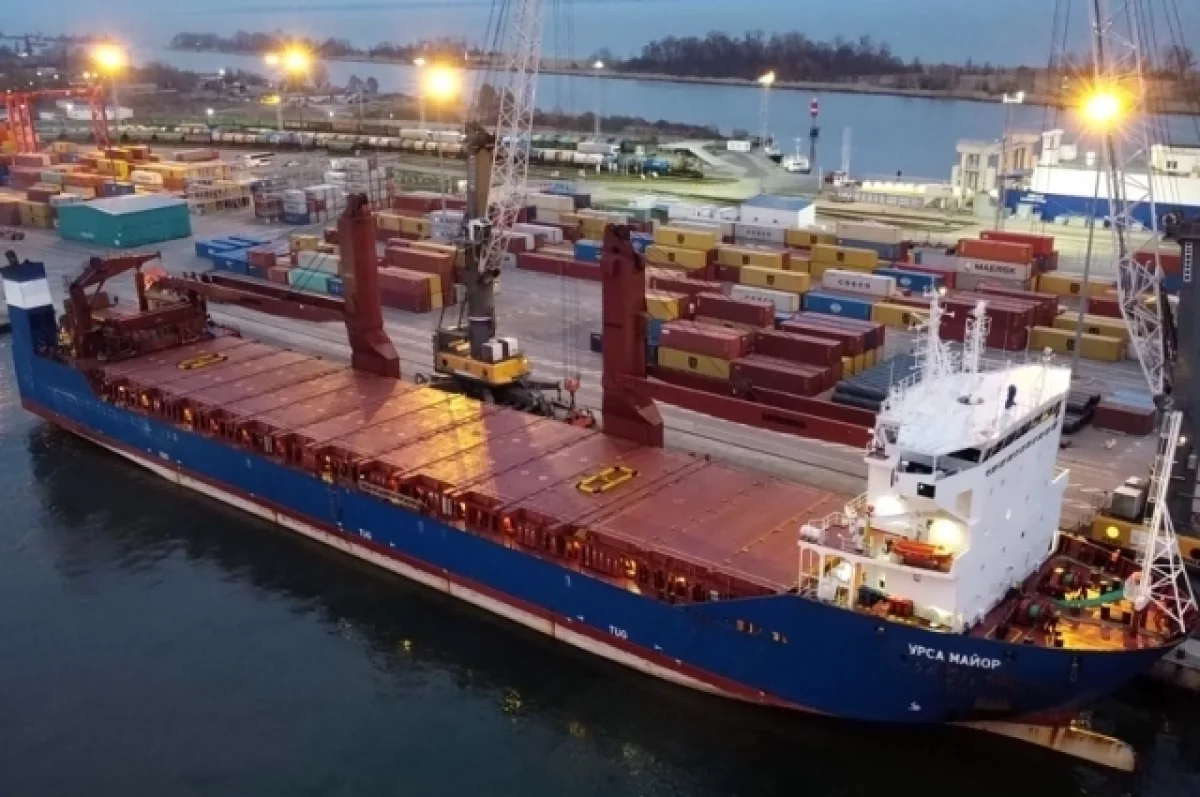
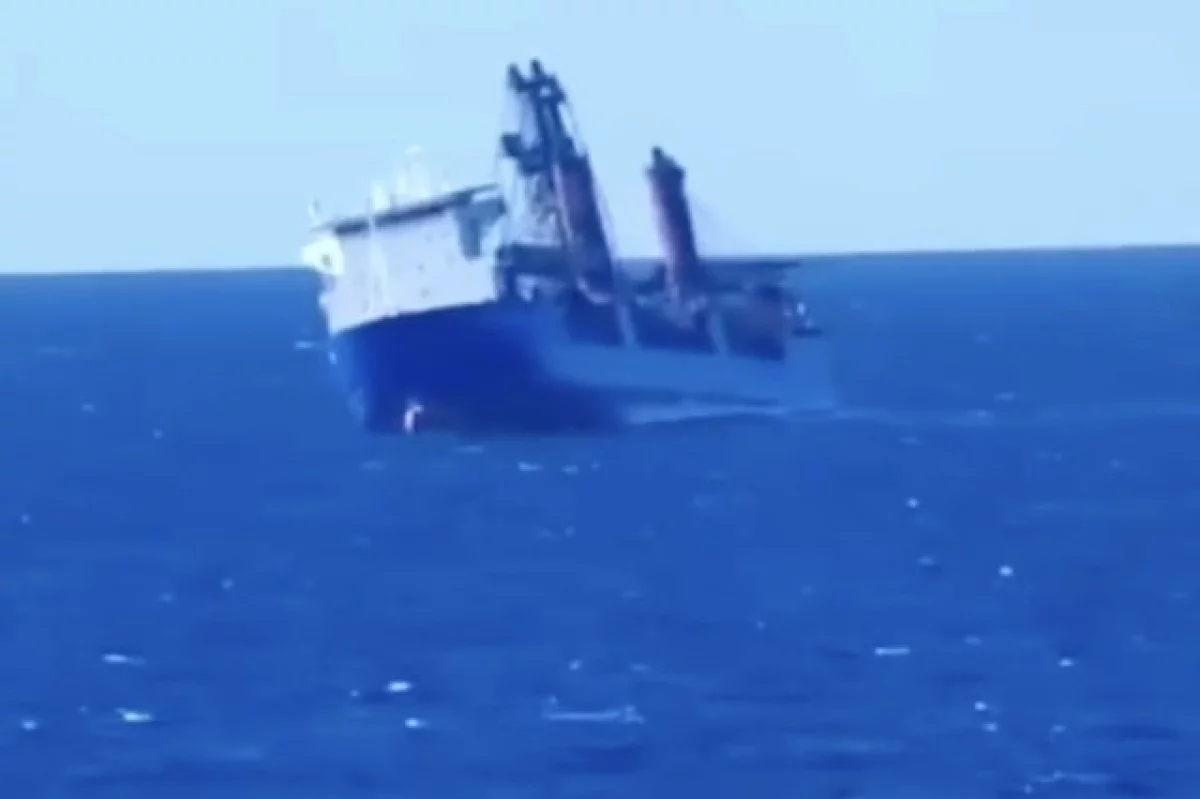
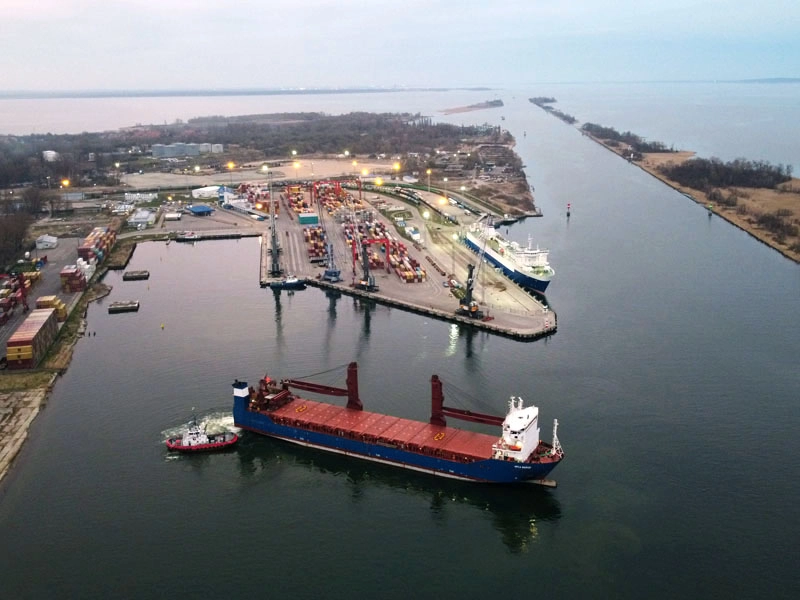
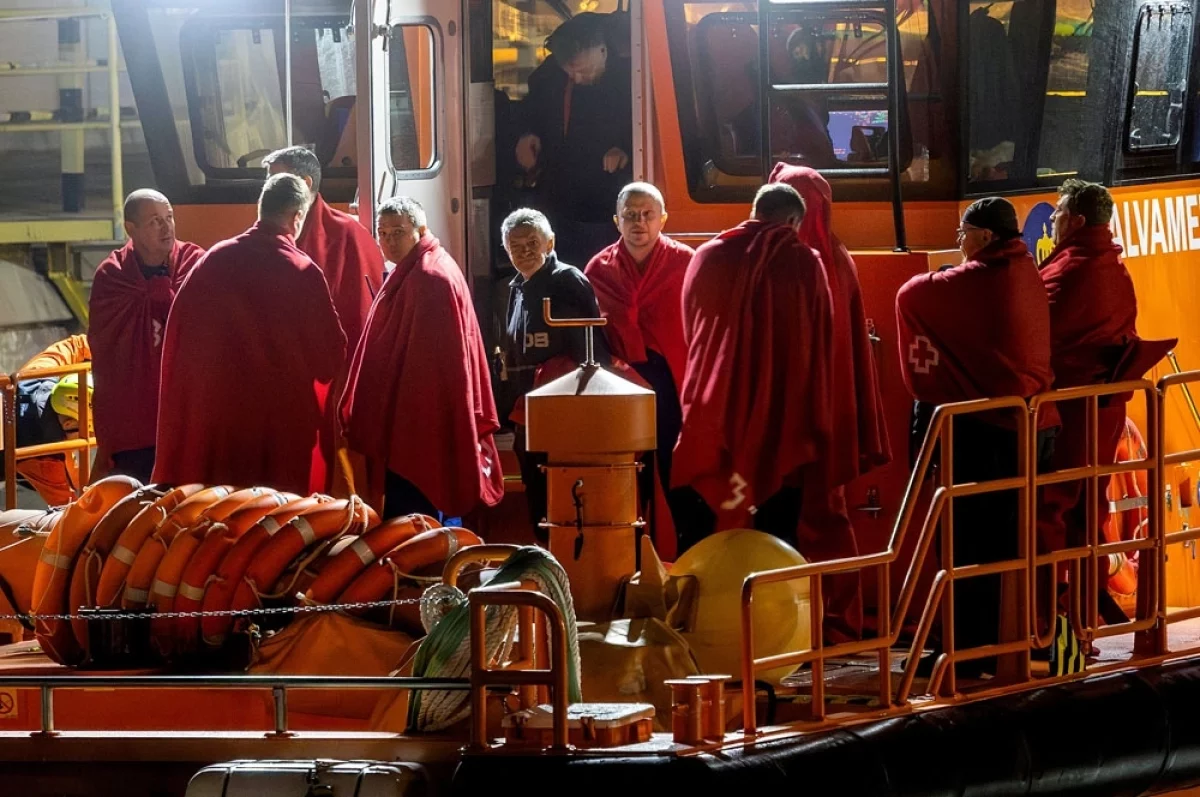
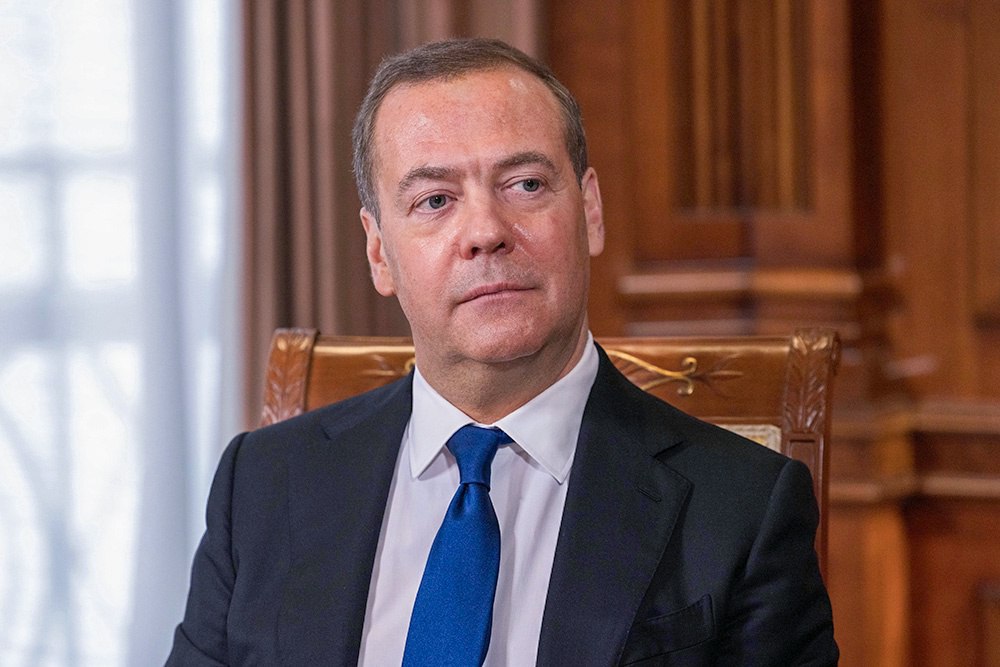
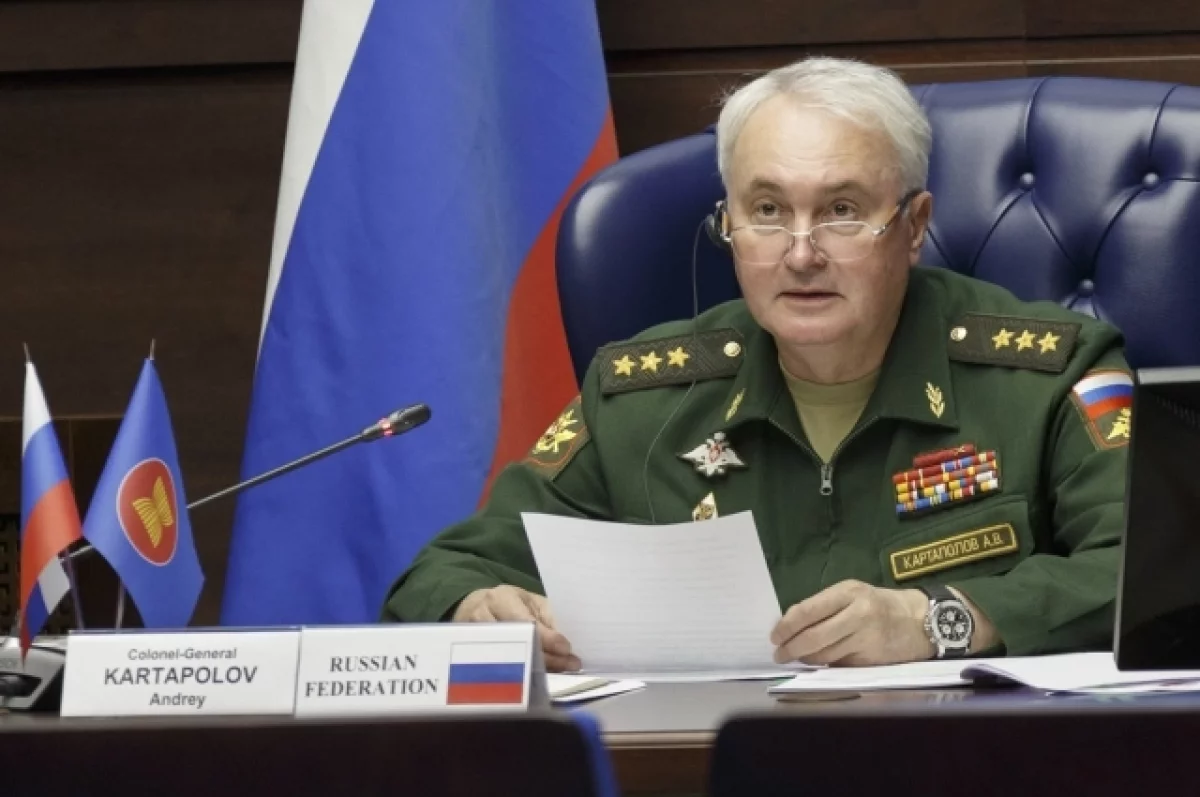
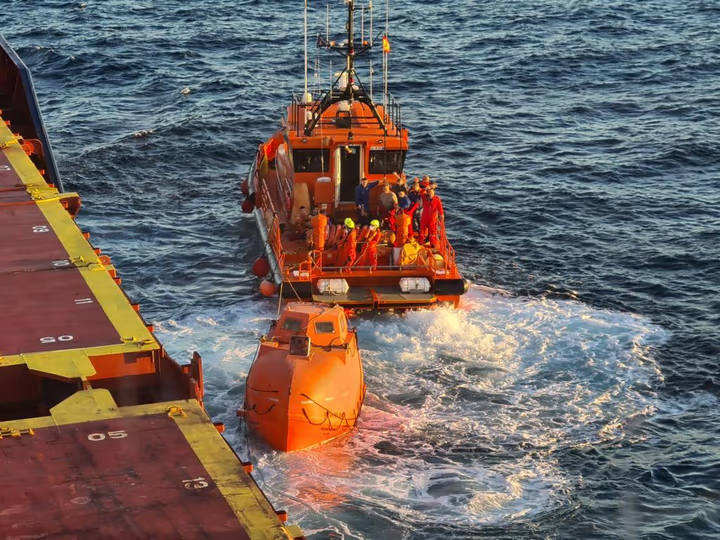
Pingback: The Norwegian excuse for not taking Russian sailors on board is not good enough | Beorn's Beehive